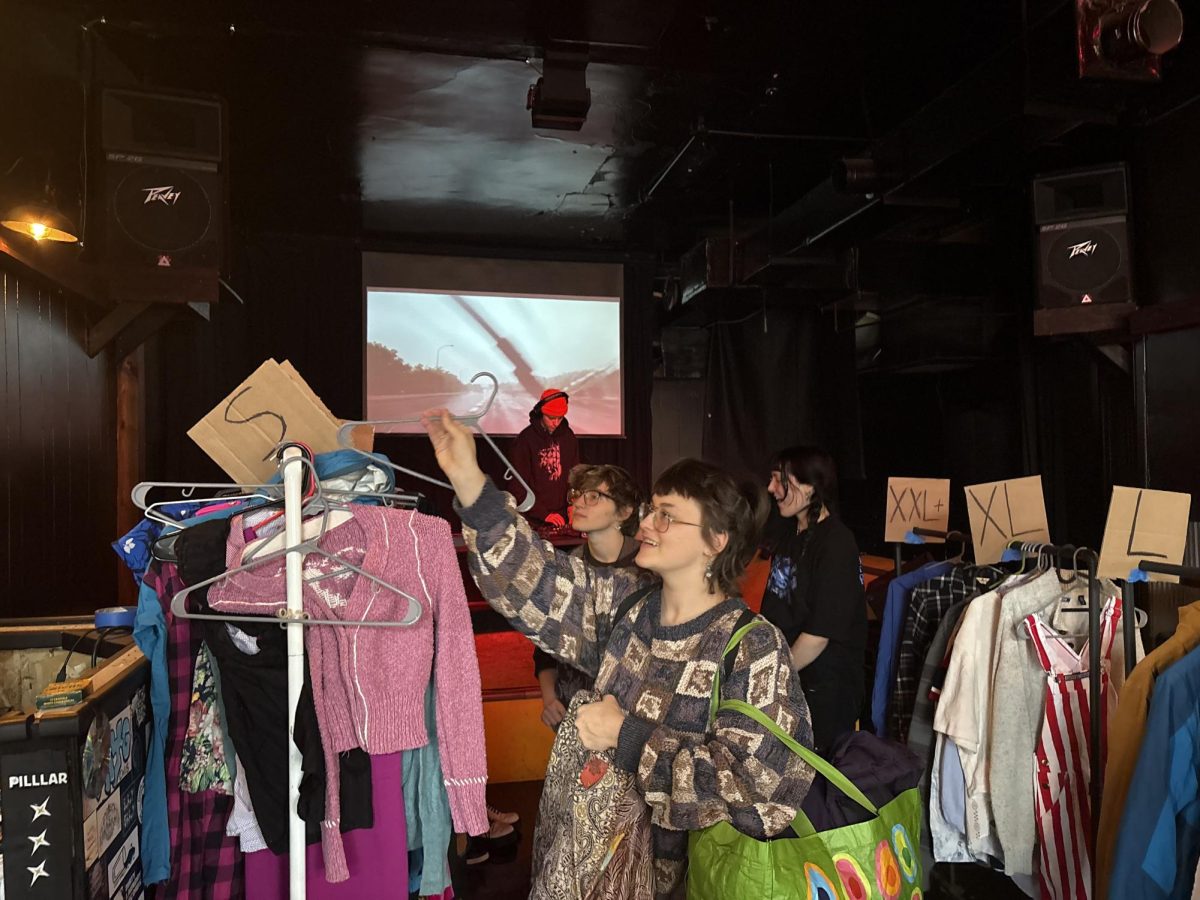The Jungle’s adaptation of Tom Stoppard’s Hapgood succeeds rather peculiarly by reveling in silence. The players here recognize the value and beauty inherent within the absence of sound. As Einstuerzende Neubauten put it so eloquently, “silence is sexy.” Every nuance of sound appears calculated and measured. Moreover, when the actors do finally open their mouths, it is with great anticipation that we sit up and listen to what they have to say.
Hapgood refers to the title character played by Children’s Theatre Company alumna Charity Jones, dressed in gray dressuits, her hair tied into a prim bun. She plays a hard-bitten secret service agent toiling away in Cold War-era London. She is the lone female on the chauvinistic team and is doing her damndest to juggle single-mother duties with a possible double-agent conspiracy, not to mention a miserable love life. The shadowy Spy vs. Spy plot itself mines familiar ground traveled a thousand times before by pulp fiction hacks. Hapgood’s intimacy issues are compounded by the possibility that any of her numerous paramours might betray her at any second to the dreaded Commie scourge. No one is really who they seem and triple crosses have become the norm here around the Thames. The recent untimely demise of several fellow co-workers dictates that everyone is now a potential suspect.
The world assuredly did not beg for another extended game of Who’s-Got-The-Briefcase skits. The audience could for the most part care less if the Americans or the British are the first to find the mole leaking allegedly sensitive material to the hated Reds. However, the world would be a much better place if even a small fraction of today’s playwrights possessed such an astute grasp of word play. The fast-paced script and spy jargon-laden dialogue may turn off lazy dullards, but remains a savory delight for those theater enthusiasts willing to take a plunge.
A surprisingly large chunk of the discourse here centers on scientific theories like quantum mechanics. It is worth noting that this play helps college students better grasp concepts like wave particle theory. Amazingly, not only does the audience now faintly understand the underlying concepts, but also it curiously even seems vaguely romantic. Who would have thought that science could break your heart?
Alex Podulke, who you may remember from the sobering Thief River at the Guthrie Lab last year, does stray into histrionics a bit excessively as the morally ambiguous Agent Ridley. Ridley, the swarthy prime suspect in the investigation, appears to be simmering around the entire time just looking for a good excuse to point his finger and scream out “Fuck!” Nevertheless, Sam Rosen more than compensates as the adorably inept assistant Merryweather. The twelve-year-old-trapped-in-a-secret-agent’s-body Merryweather appears rather briefly to bumble through Hapgood’s assignments but is memorable for his cutey-pie, near baby-talk delivery.
Playwright Stoppard, perhaps best known for the deliciously irreverent Rosencrantz and Guildenstern Are Dead, justifies the critic fawning. The overall story itself is somewhat reminiscent of 1990’s The Russia House, perhaps because Stoppard wrote the novel’s film adaptation. Hapgood’s verboten affair with a Russian patsy here bears strong parallels to Barley Blair’s self-destructive romp with Katya Orlova in the sense that the basis of both long-distance relationships centers more on politically strategic alliances and temporary lust rather than genuine affection for one another. There are some trite romantic interludes we could do without, also not terribly surprising since Stoppard wrote 1998’s sappy Shakespeare in Love screenplay.
Inconsequential flaws aside, Hapgood is as uncomprising as it is entertaining. There are several lines here already destined for the quotation books. “We keep each other in business, you know. Why don’t we just give it up and send each other Christmas cards?,” Hapgood queries during her final scene. The most affecting scene executed here, however, comes and goes with nary a word uttered. Time appears to stand still with the opening sequence as we scratch our heads trying to keep up with the blitzkrieg of crossed signals and misplaced packages, the lone sound being the gentle hum of running water and an occasional crackle from a walkie-talkie. Edgy, dangerous moments like these stretch our expectations of what traditional theater ought to be.







